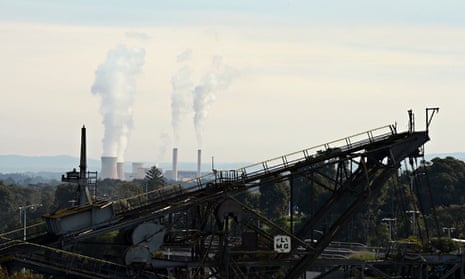Australia has come 12th on an index that ranks wealthy nations according to how their policies affect poorer countries, performing strongly on trade but placed second to last on its stance on the environment.
The 2014 commitment to development index, compiled by the US thinktank the Center for Global Development (CGD), found Australia was second only to New Zealand on trade policies due to the low tariffs on imports from developing countries. Australia was also praised for its role in peacekeeping efforts.
However, the report stated: “On the negative side, Australia has the highest greenhouse gas emissions, high fossil fuel production, low gas taxes, and low government spending on research and development, all of which drags down its final score.”
Of the 27 wealthy nations analysed – comprising countries in western and southern Europe, north America and Japan and South Korea – only Canada was ranked worse than Australia on the environment.
Australia is mid-table for its foreign aid contribution and foreign investment, with relatively high rankings for security and migration. Australia’s ranking for technology investment was in the bottom third.
Overall, Denmark was placed first in the index due to its foreign aid contribution, encouragement of research and development and investment in developing countries. Sweden was second, with Finland rounding off a Scandinavian top three.
Australia, which came 12th last year, was placed ahead of the US, Japan and Germany, but behind the UK, France and New Zealand.
The commitment to development index has been compiled each year since 2003, ranking countries on policies that affect the 5 billion people who live in poorer countries.
Marc Purcell, the executive director of the Australian Council for International Development, the peak body for aid agencies, said Australia’s performance on foreign aid was worse than illustrated in the report.
In December, the government decided to cut $3.7bn from the foreign aid budget, on top of the $7.6bn cut, over five years, announced in the budget.
“This report doesn’t take into account those massive cuts, so Australia should be lower,” Purcell told Guardian Australia. “We are dropping behind other countries on foreign aid and we will be at our lowest ever level in a few years’ time. You only have to look at the UK, which has increased its commitment to helping the poorest in the world to see how far backwards Australia is moving.
“Australia’s aid program is the major tool for soft diplomacy and actually achieving poverty alleviation. The government has taken a wrecking ball to poverty alleviation efforts over the past year.”
Purcell said Australia could improve its ranking by lifting its humanitarian refugee intake to 20,000 people and by developing a market-based system to lower carbon emissions.
“It’s widely recognised that Australia doesn’t have a credible position on climate change and we will have to lift our game,” he said. “Australia has to start rebuilding its aid budget, gain a credible position on climate change and increase its refugee intake. Then you’d see Australia in the top 10.”
While Australia has signed free trade deals with China, Japan and South Korea over the past year, Purcell said a global trade agreement was needed to help people in developing countries.
“Wealthy countries have significant barriers when it comes to products of developing countries and a global trade agreement is the only way to see improvements,” he said. “Bilateral trade agreements are really peripheral to this.”
The Center for Global Development said the world’s richest countries could all do more to create more coherent, development-friendly policies.
“We should stop thinking of development policies as sacrifices that rich countries need to make for poor countries”, said Owen Barder, the director of CGD’s Europe office and author of the index.
“It is in all our interests to collect taxes that are due; generate and spread new ideas and knowledge that enrich all our lives; protect our planet; build institutions that make our world safer and fairer; and from a fair and open trading system. What gets measured gets done – in 2015 the world must agree how to measure progress on these issues.”
The CGD identified three major international summits in 2015 that could be used to improve matters – a gathering to discuss the replacement for the expired millennium development goals, a new framework for sustainable development targets and a crunch meeting in Paris to thrash out a deal to tackle climate change.

Comments (…)
Sign in or create your Guardian account to join the discussion